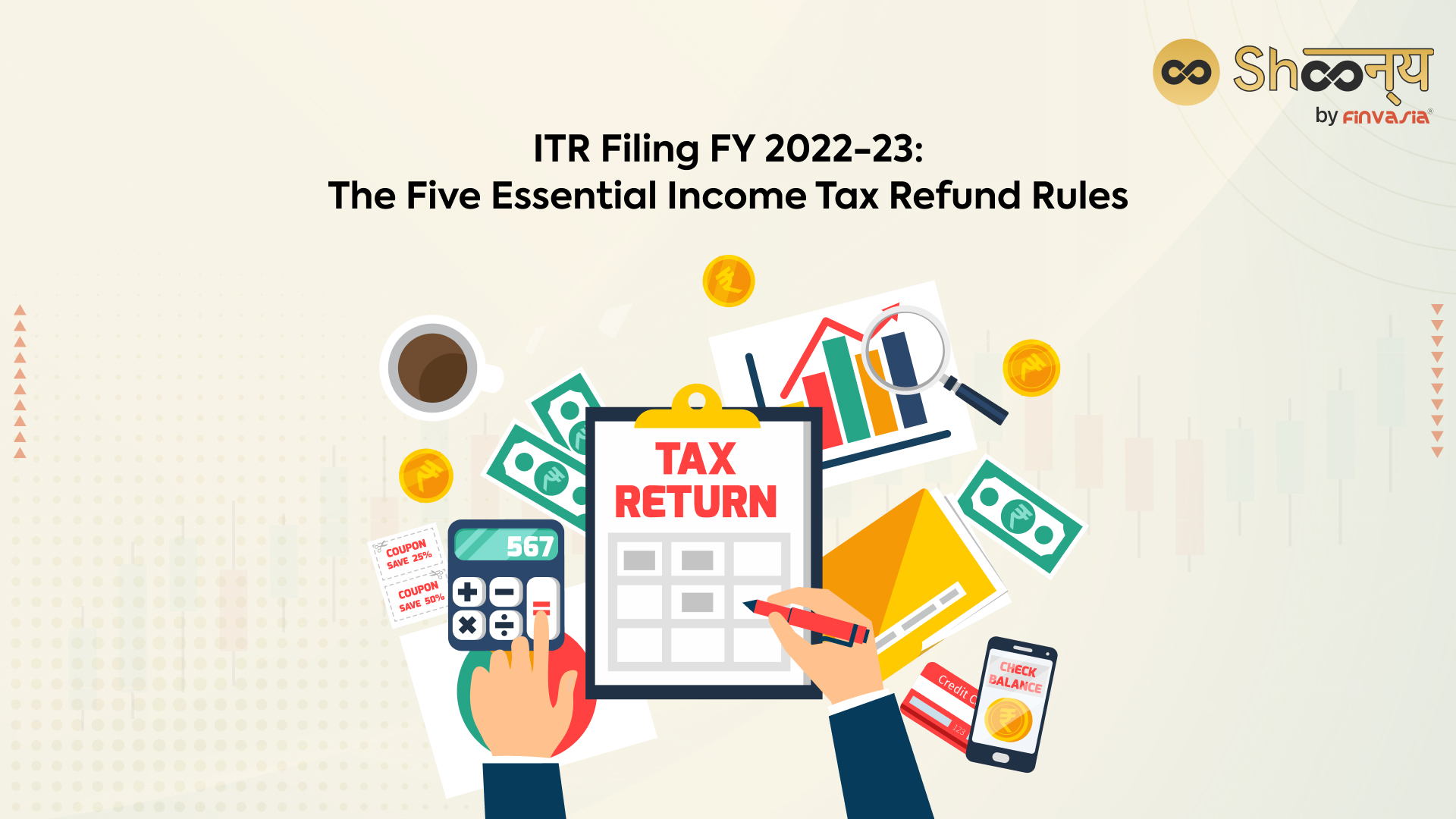As the deadline for the upcoming income tax filing, July 31st for the financial year 2022-23, approaches today, we will provide you with essential details regarding the ITR filing process, income tax refund rules, and the ITR filing last date.
Key Highlights
- Taxpayers can claim an income tax refund when the taxes paid on their behalf exceed their tax liability.
- File your Income Tax Return (ITR), including all income and applicable exemptions and deductions, to claim a refund.
- The net amount of excess tax paid is not taxable, but interest received on the refund is taxable.
- The income tax department can adjust refunds against outstanding demands, with intimation provided.
- If you fail to file your ITR by the due date (July 31st), you can still claim a refund by following certain conditions.
- The last date for an income tax return is July 31st, 2023; make sure to file your ITR properly.
5 Income Tax Refund Rules You Must Know
- Eligibility for Income Tax Refund
When the taxes paid on behalf of a taxpayer exceed their tax liability, they are entitled to claim an income tax refund. This includes taxes deducted at source (TDS), taxes collected at source (TCS), advance tax, and self-assessment tax.
- How to Claim an Income Tax Refund
To claim an income tax refund, include all your income and apply relevant exemptions and deductions while submitting your Income Tax Return (ITR). If the taxes deducted/collected and paid exceed the tax liability calculated in your ITR, you will receive the refund after the processing of your return. It’s important to note that as per the income tax refund time, refunds are not issued instantly but after the income tax department verifies the details of taxes paid.
- Claiming a Refund after the Due Date
If you have missed the deadline for filing your ITR (December 31st), you can still claim a refund as per circular no. 9/2015 for up to six assessment years, provided you meet certain conditions. You need to file an application for condonation of delay and, once the delay is condoned, file the ITRs online for the last six years, citing the reference of the order granting condonation.
Check out Benefits and Mistakes to Avoid in Online ITR Filing.
- Taxability of Income Tax Refund
The amount received as a refund is not taxable. However, interest is payable on the excess of advance tax and TDS/TCS over the net tax liability. Interest accrues from April 1st of the financial year following the year in which the ITR is filed. Full interest is given if the ITR is filed by the due date (typically July 31st). If there is a delay in filing the refund claim, the taxpayer forfeits the interest for that period. The interest received on the income tax refund is taxable.
- Withholding and Claiming Refunds
As per the new income tax return rules, the income tax department has the authority to adjust the refund due against any outstanding demand from previous years. However, they are required to provide an intimation before making such adjustments, although this is not always followed. If your refund has been wrongfully adjusted, you can raise a grievance on the income tax website after logging into your account. On the other hand, taxpayers do not have the privilege to adjust any income tax refund due from previous years against the tax payable for subsequent years.
Conclusion
It’s crucial to understand the ITR new rules and the ITR refund process, including eligibility, claiming procedures, and taxability. Remember to file your returns by the deadline of July 31st to ensure smoothness in your refund process.
FAQs
If your income tax refund exceeds 50000, it will be issued through the electronic clearing system (ECS) or directly credited to your bank account. To receive the refund, you need to provide your bank account details, including your account number, IFSC code, MICR code, etc., in your income tax return form.
You are eligible for an income tax refund if the total tax amount you’ve paid (or paid on your behalf) exceeds your actual tax liability. This can occur if you’ve paid excess advance tax, self-assessment tax, tax deducted at source (TDS), or tax collected at source (TCS).
The rule for filing an income tax return states that anyone whose total income surpasses the maximum amount not subject to taxation (basic exemption limit) in a financial year must file an income tax return by the specified due date, as per Section 139 of the Income Tax Act, 1961.
Anyone who has paid more tax than their actual tax liability is eligible for an income tax refund from the income tax department. Once the income tax return is processed and the claim is verified, the refund amount will be credited to the taxpayer’s bank account.
Sources: livemint.com
______________________________________________________________________________________
Disclaimer: Investments in the securities market are subject to market risks; read all the related documents carefully before investing.

